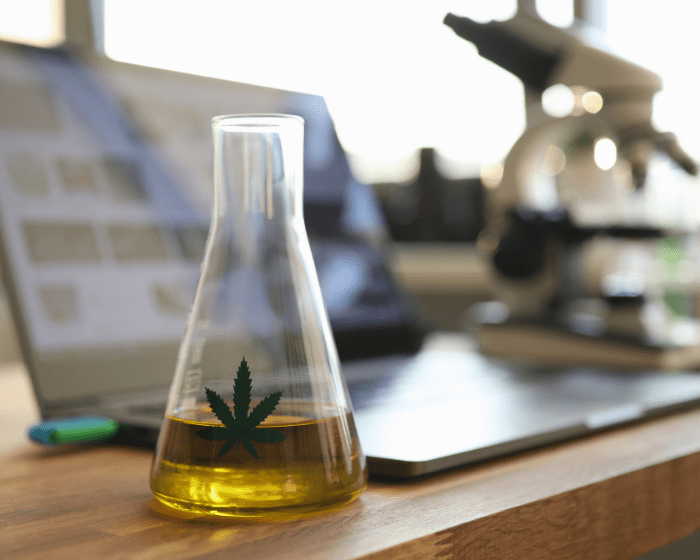
Nearly half of patients with breast cancer use cannabis, according to the results of a recent study published in Cancer, the peer-reviewed journal of the American Cancer Society.
The survey found that breast cancer patients who turned to either CBD or THC tended to do so during the active treatment phase of illness to manage pain, anxiety, insomnia and nausea. Of these, 61 percent said they didn’t tell their doctor about their cannabis use.
The study surveyed United States residents who had breast cancer in the last five years. Participants answered questions anonymously through the websites Breastcancer.org and Healthline.com.
Patients Reported Using Cannabis to Relieve Pain and Insomnia
Forty-two percent of respondents reported using cannabis to relieve side effects of treatment. The numbers below focus on this subset of the study, so the percentages you see are not indicative of overall use by the group.
Those who used cannabis reported doing so to relieve:
78% pain
70% insomnia
57% anxiety
51% stress
46% nausea/vomiting
79% used it during treatment (systemic therapies, radiation or surgery)
39% discussed it with their doctor
The study's lead author, Dr. Marisa Weiss, was sympathetic to patients' reasons for using cannabis during breast cancer treatment.
“They are not using it to get high, but to manage the side effects of breast cancer or the treatments for breast cancer,” Weiss, an oncologist and the founder of Breastcancer.org, told NBC News. “It can be a pretty rough ride. People are struggling to keep going and to have a reasonable quality of life.”
However, few of the findings concerned Weiss and her partners in the study:
- most participants were not aware that product quality varies widely
- patients are not talking to their doctor before making decisions about cannabis use during breast cancer treatment
- 49% of participants believed that cannabis could treat cancer
Many Doctors Feel Unprepared to Discuss Cannabis Use with Patients
The study’s authors cited results of a different survey that found 70% of medical oncologists “felt unprepared to discuss cannabis use and to make clinical recommendations for their patients.” One of the goals in publishing the results of the study was to demonstrate the immediate need for doctors to initiate conversations about cannabis use with patients, including the risks and potential benefits.
Are Doctors Supportive of Cannabis Use?
The study found that the older a patient was, the more likely they were to ask their physician about cannabis.
87% of those 66 years or older
76% of ages 50 to 65 years
69% of those younger than 50
28% of all respondents said they were uncomfortable with discussing cannabis with their physician
Perhaps ironically, among those who did bring up cannabis with their doc, younger patients were more likely to feel supported.
72% of patients under 50 felt that their physician was extremely or very supportive
52% of those aged 50 to 65 years felt the same
46% of those aged 66 years felt supported
Participants Reported Using a Wide Range of THC and CBD Products
On average, participants used 3-4 different products, including edibles, oils and tinctures, smoking, topicals and vaping.
They also tended to prefer CBD to THC. However, the study’s authors noted that many respondents didn’t fully understand the difference between CBD and THC.
22% preferred CBD exclusively
21% preferred mostly CBD
19% preferred an equal ratio of THC and CBD
26% preferred mostly or exclusively THC
7% had no preference
In closing, this study reveals a chasm that needs bridging. People with breast cancer are actively seeking relief from cannabis products. Unfortunately, many feel that they can't share that with their doctor. The study's authors suggest it may be time for doctors to learn more about the benefits and risk of cannabis use during treatment, and begin broaching the topic with patients.







































